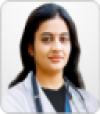How To Treat Typhoid In A Child?

 Tue, 5 Mar 2013
Answered on
Tue, 5 Mar 2013
Answered on
 Wed, 3 Apr 2013
Last reviewed on
Wed, 3 Apr 2013
Last reviewed on
Thank you for your query.
Typhoid fever, also known simply as typhoid, is a common worldwide bacterial disease, transmitted by the ingestion of food or water contaminated with the feces of an infected person, which contain the bacterium Salmonella typhi. Typhoid germs are passed through the stools and urine of infected people. Your child might become infected after having food or drinks that have been handled by a person who is infected and who has not washed her hands properly after using the toilet.
He may also get typhoid by drinking water that has been contaminated by sewage. Some children have been reported to develop typhoid fever after drinking swimming pool water. But typhoid or paratyphoid fever is unlikely in children below the age of two years because of the nature of the illness.
Signs of typhoid usually develop within one to three weeks, and may be mild or severe. They include:
high fever
malaise
headache
constipation or diarrhoea
rose-coloured spots on the chest
a coated tongue
enlarged spleen and liver
The Widal test is done routinely in India to diagnose typhoid infection.
Timing of test is important, as antibodies begin to arise during end of first week. The titres increase during second, third and fourth week after which it gradually declines. The test may be negative in early part of first week.
A Single test is usually of not much value. A rise in titre between two sera specimens is more meaningful than a single test.
A titre of 100 or more for O antigen is considered significant and a titre in excess of 200 for H antigens is considered significant, hence your result is not much of concern, however for children lower cut off s are used. Some labs insist that a value more than 4 times normal ( reference value will be attached in your report ) , is considered significant.
In short, please do not attach much importance to this single report. If your child is suffering from fever or any of the other symptoms of typhoid, consult your doctor, as typhoid is more of a clinical diagnosis.
It can be treated by appropriate antibiotics. Make sure your child completes the full course of antibiotics. Only then will she be completely cured though relapses are known to occur in upto 10 percent of typhoid cases.
You can help your child recover faster by:
Offering her lots of fluids and food:She will be losing a lot of fluid, through the fever, sweat, vomit and diarrhoea. Make sure she has lots to drink every day. Ask your doctor for oral rehydration solution (ORS). That will replace all the fluids and nutrients your child is losing.
While your child is sick, she will need to eat mainly soft, runny foods. You can offer foods like boiled milk, daal ka pani and clear soups.Try giving frequent small meals rather than three large meals a day.
As she gets stronger, you can add thicker foods like moong dal khichri, sabudana khichri, upma, soft boiled or scrambled eggs, mashed potatoes, porridge or light XXXXXXX and soft bread.
Keep giving your baby soft food to eat for a week after fever has ended.
Making sure she gets plenty of rest: See that her room is well aired and clean.
Giving her refreshing washes: Wash your child every day. If she has a fever, you can wipe clean with a damp sponge .
There is a vaccination against typhoid. But the vaccine doesn't provide full protection against the infection. So it's best to prevent getting infected through these steps:
Purifying drinking water: Make sure the water you drink is clean. Unclean water can make you and your baby ill. The simplest way to get safe drinking water is to boil it. You need to bring the water to a rolling boil and let it keep boiling for one minute to kill all germs. Let it cool naturally and use as you need.
Keep your child's diet healthy when eating out and on the move. Steer clear of street vendors who sell ice cream or fast food. They may not prepare the food under clean conditions, and that could make your child sick. Instead, take sandwiches, paranthas or stuffed rotis and some fruit along when you go out.
Keeping clean: See that you and your family wash your hands often. Wash hands after going to the toilet, after handling pets, and before cooking and eating. This will help keep dirt and germs away, and will help keep you all healthy.
Keep your kitchen clean. Wash cooking areas and tables with soap and water after meals. Throw away any food that is going off or past its due date. Bad food could make you and your child sick.
Wash fruit and vegetables well before eating. That will remove any dirt they have.
Make sure that anyone who comes into your child's room has washed their hands first. And try to keep your little one away from sick people.
Take care, and feel free to discuss further.

However you need to consult a Pediatrician for exact diagnosis, dose and prescription.
Take care.
Answered by

Get personalised answers from verified doctor in minutes across 80+ specialties



